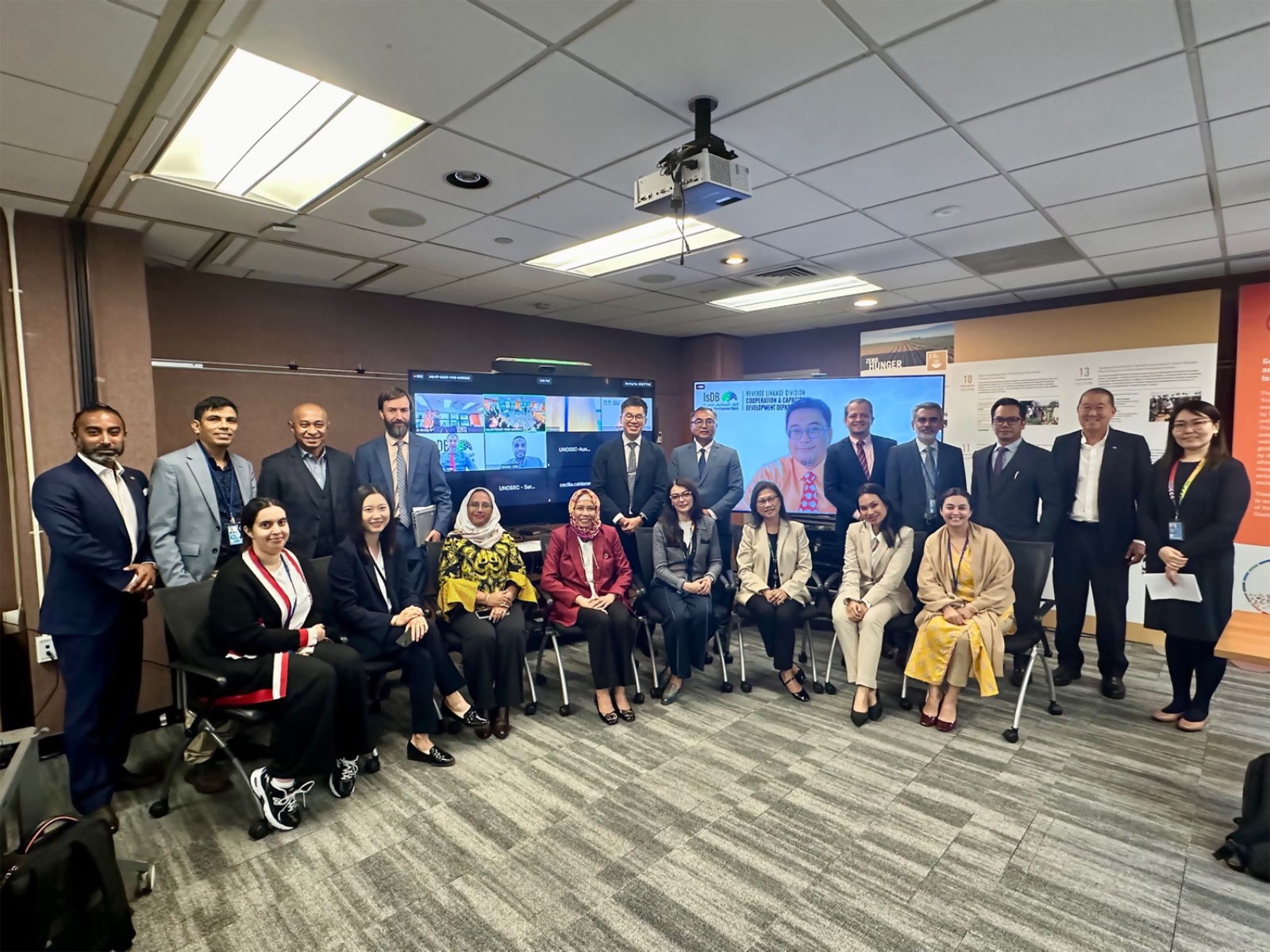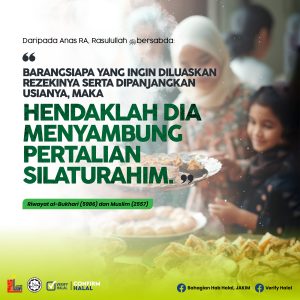NEW YORK, 26th September 2024 – A pivotal discussion on the role of the private sector in scaling sustainable impact took place yesterday at the Global Advocacy Dialogue Series, co-organised by the Islamic Development Bank (IsDB) and the United Nations Office for South-South Cooperation (UNOSSC), at the UN Headquarters in New York.
The dialogue, part of the broader series initiated under the Memorandum of Understanding (MoU) signed between IsDB and UNOSSC in September 2023, seeks to explore innovative partnerships and evolving trends in South-South and triangular cooperation. The event focused specifically on the potential of the private sector to drive sustainable development through innovation, expertise, and collaboration.
The high-level panel discussion, Scaling Impact – Insights from the Private Sector, featured distinguished discussants including Dr. Issa Faye, Head of Delegation of IsDB to UNGA, Director General of Global Practice and Partnerships, and Ms. Amnah Shaari, Group Chief Executive Officer and Founder of Serunai Commerce Sdn Bhd. The session also included contributions from Mr. Sahba Sobhani, Director of the UNDP International Centre for Private Sector in Development, Mr. Tarik Bourquouquou, Manager of International Projects Development at MASEN, and Ms. Dima Al-Khatib, Director of UNOSSC, who closed the session.
Serunai Commerce’s Commitment to the Halal Ecosystem
Among the key discussants were Ms. Amnah Shaari, Group Chief Executive Officer and Founder of Serunai Commerce Sdn Bhd, who highlighted the transformative potential of the Halal ecosystem, underpinned by ethical and transparent business practices.
“At Serunai Commerce, we believe that the Halal ecosystem goes beyond religion. It is a comprehensive framework that integrates technology, science, and ethical sourcing, creating economic opportunities and fostering sustainable development,” said Ms. Shaari. She also spoke of Serunai’s Digital Halal Ecosystem, which empowers businesses and governments to participate effectively in global trade while contributing to job creation and economic inclusivity.
Malaysia’s 50 Years of Leadership in the Halal Sector
Malaysia has been a trailblazer in the global Halal industry for the past five decades, establishing itself as a global leader by advancing a robust Halal ecosystem that stretches far beyond the realm of food. Since the inception of the first Halal certification by JAKIM, the country has expanded its expertise to include nine distinct schemes, covering sectors like pharmaceuticals, cosmetics, and logistics.
“Over 50 years, Malaysia has demonstrated a forward-thinking approach to Halal, making it not only a symbol of religious observance but an engine for ethical and sustainable business practices,” remarked Ms. Shaari. “This pioneering leadership has positioned Malaysia as a key player in the international Halal economy, shaping standards, protocols, and technologies that are now being adopted globally.”
Serunai Commerce, through its partnerships with both government bodies and the private sector, continues to contribute significantly to JAKIM’s efforts, helping to expand Malaysia’s influence and ensuring the Halal standards remain at the cutting edge of innovation and integrity.
The Strategic Role of Reverse Linkage
Ms. Shaari further elaborated on the strategic role of the Reverse Linkage Modality, supported by the IsDB, which has been instrumental in Serunai’s success in countries like Indonesia, Uganda, Fiji, and the Maldives, with plans to expand into Bangladesh, Senegal, Algeria, and Albania. The contribution of key experts, such as Mr. Aminuddin Mat Arif, IsDB’s Lead Technical Cooperation Specialist (Reverse Linkage), has been invaluable in shaping solutions tailored to the unique needs of each country, ensuring that projects are both impactful and scalable.
“Through the expertise and commitment of Mr. Aminuddin, alongside the crucial support from IsDB, we have been able to foster meaningful change and broaden the reach of the Digital Halal Ecosystem. This system equips both governments and businesses to engage more effectively in international trade while advancing broader development goals, including economic inclusivity,” she added.
The Ideas Foundry: Engaging the Private Sector
The event also featured an Ideas Foundry: Strategic Brainstorming, Concretising Ideas and Networking Session, led by Mr. Aminuddin Mat Arif, IsDB Lead Technical Cooperation Specialist (Reverse Linkage), in charge of SS&TrC Global Private Sector Partnerships. This session highlighted a variety of opportunities for SSTrC interventions, specifically in the context of Reverse Linkage and the Solutions Lab.
The Ideas Foundry emphasised the need for greater private sector involvement in intellectual and technical discussions, to drive global development objectives. The session underscored the importance of welcoming more private sector partners to enrich discussions and identify practical, sustainable opportunities for collaboration. As the private sector plays a critical role in achieving sustainable development goals, its contributions to South-South and triangular cooperation are increasingly pivotal.
Public-Private Partnerships as Catalysts for Change
The dialogue reaffirmed the essential role of Public-Private Partnerships (PPP) in driving meaningful and scalable impact. By bringing together the expertise of governments and the innovation of the private sector, these collaborations ensure a more sustainable and inclusive approach to global development.
The next dialogue in the IsDB-UNOSSC Advocacy Series will continue to explore the evolving landscape of private sector engagement in sustainable development, further solidifying the role of SSTrC in addressing global challenges.







Like (0)